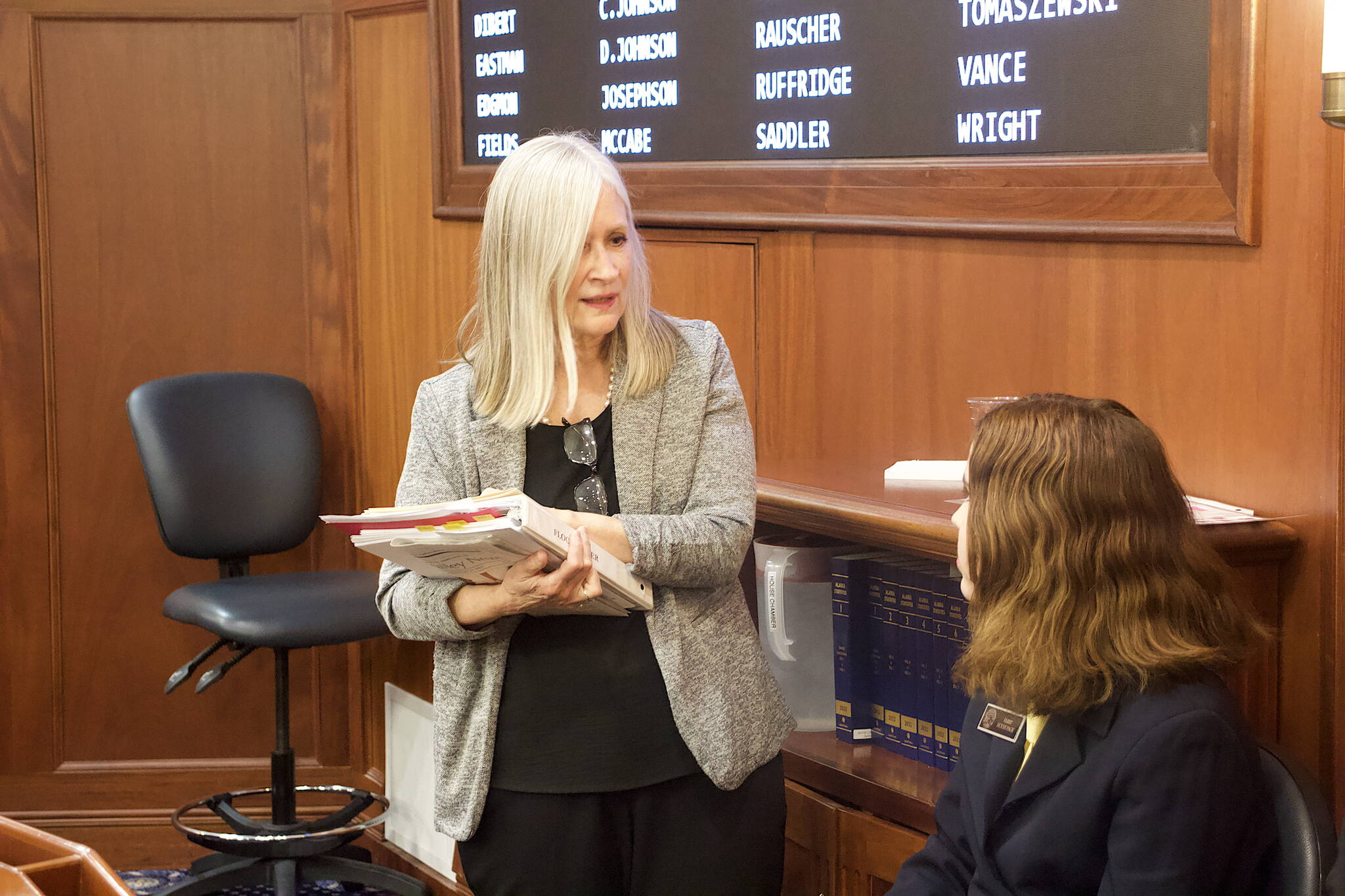A bill giving public school teachers annual retention bonuses of up to $15,000 under a pilot program for the next three years was unanimously advanced by the House Education Committee on Wednesday, but the minority members expressed concerns it may used as a cheap substitute for a larger and permanent increase to education funding.
House Bill 106, introduced by Gov. Mike Dunleavy, gives end-of-school-year bonuses of $5,000, $10,000 or $15,000, with larger amounts going to teachers in more rural districts. The governor and legislators supporting the bill say it may help resolve a dire shortage of teachers who are difficult to recruit and retain due to salaries and other employment conditions that don’t compare well nationally.
The bill would provide about $58 million a year for the bonuses, far less than the roughly $130 million to $275 million increase some House and Senate leaders are seeking for the base student allocation formula that last saw a significant increase in 2017. But Rep. Jamie Allard, an Eagle River Republican who co-chairs the committee, said such an increase wouldn’t necessarily resolve the teacher pay issue.
“I want to support our teachers,” she said. “There’s no guarantee that the BSA (increase) with the school districts is going to do any increase with salary of teachers. That is up to to individual unions, the school districts and the school boards.”
Educators, lawmakers and other supporters of bills increasing the BSA have stated higher compensation to teachers and other employees is a presumption, as is improving workplace conditions such as classrooms.
“I don’t think in any way this should be a replacement for the BSA because working conditions are so important for our students and our teachers to thrive,” said Rep. Andi Story, a Juneau Democrat. “So we have to make sure we’re keeping up with increased costs.”
Current proposals increase the $5,960 BSA by anywhere from $680 to $1,000 this year, with some adding further funds the following year. But leaders of the Republican-led House in particular are expressing doubt a formula increase will pass and instead are talking about a one-time separate increase. The Senate Finance Committee, meanwhile, has reduced a $1,000 BSA increase favored by some members earlier this session to $680 — the same amount as a bill in the House — as part of an effort to deal with lower-than-expected oil prices while avoiding a budget with a deficit.
The temporary three-year period for the retention bonuses was the other primary concern of minority members of the committee. Rep. Rebecca Himschoot, a Sitka independent, offered an amendment “to take a good idea and make it a permanent idea.”
“An issue of concern I have with this bill is we already have a retirement system that doesn’t have incentive for people to stay longer than five years,” she said. “By having this bill we’re saying put in your three years and go.”
Majority members of the committee said they’re not ready to make the bonuses permanent until there’s a chance to evaluate their effectiveness during the trial period.
“I’m willing to concede on a short-term basis to see how much good it does,” said Rep. Mike Prax, a North Pole Republican. “I don’t think it would be a good idea to make it permanent.”
Himschoot’s amendment was defeated by a 3-4 vote, and she initially passed and then paused at length before joining the other committee members in the vote advancing the bill from committee.
Studies elsewhere have shown mixed results for retention bonuses for teachers and other professions, with successes most often occurring when offered to retain high-performing employees, target especially hard-to-hire specialized jobs and/or are structured to reward future rather than past behavior.
Story said she’s hoping to see some such provisions added to the bill during further hearings. Among them are offering higher bonuses for Title I schools with a high percentage of low-income students and dividing bonuses so two-thirds of the money is paid at the end of the school year and the remaining amount during the first quarter of the following school year “to make sure we’re keeping those teachers there.”
HB 106 still needs to advance beyond the Finance Committee before reaching the floor. A companion Senate bill, SB 97, has had a single hearing on April 3.
• Contact reporter Mark Sabbatini at mark.sabbatini@juneauempire.com

